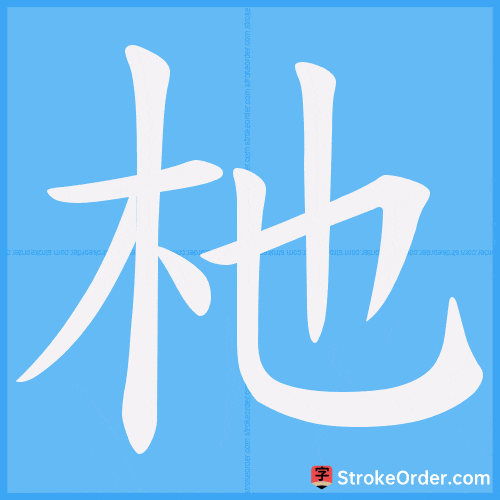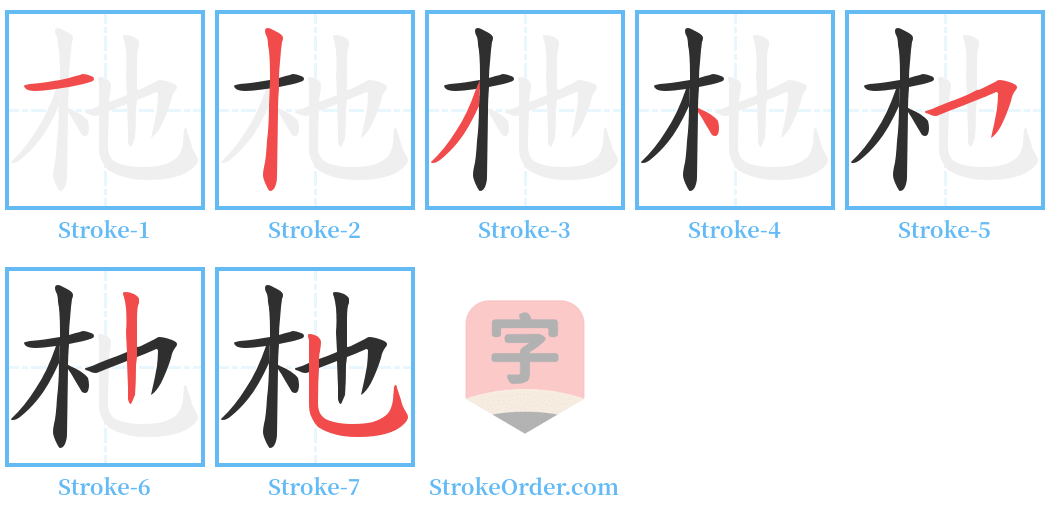杝 Stroke Order
Animated Stroke Order of 杝

Stroke Order Diagrams for 杝

Information of 杝
Pinyin
yí、 lì、 lí、 duò、 tuò
Radical
木
Strokes
7 strokes
Usage
★★
Definition
杝
柂 yí
〈名〉
1. 椴树,落叶乔木。
A type of linden tree, a deciduous tree.
2. 山桃。
Mountain peach.
杝
柂 yí
〈名〉
1. 古书上指似白杨的一种树。
In ancient texts, refers to a type of tree resembling a white poplar.
引: 《尔雅·释木》:杝,杝。 注:“白杝也。树似白杨。”
Citation: "Erya, Explanation of Wood": 杝, 杝. Note: "It is the white 杝 tree, similar to a white poplar."
2. 另见 duò。
See also: duò.
1. 顺着木纹劈开。
Split along the wood grain.
2. 扩大。
Expand.
1. 顺着木纹劈开:“伐木掎矣,析薪~矣。”
Split along the wood grain: "Timber is gathered, and the firewood is split."
2. 扩大。
Expand.
古通“篱”,篱笆。
Ancient term for "fence," fence.
例: “~落不完,墙垣不牢。”
Example: "The fence doesn’t end, and the wall isn’t secure."
古同“舵”,控制行船方向的设备。
Ancient usage identical to "rudder," a device for steering a ship.
另见 duò。
See also: duò.
古代的一种车。
An ancient type of vehicle.